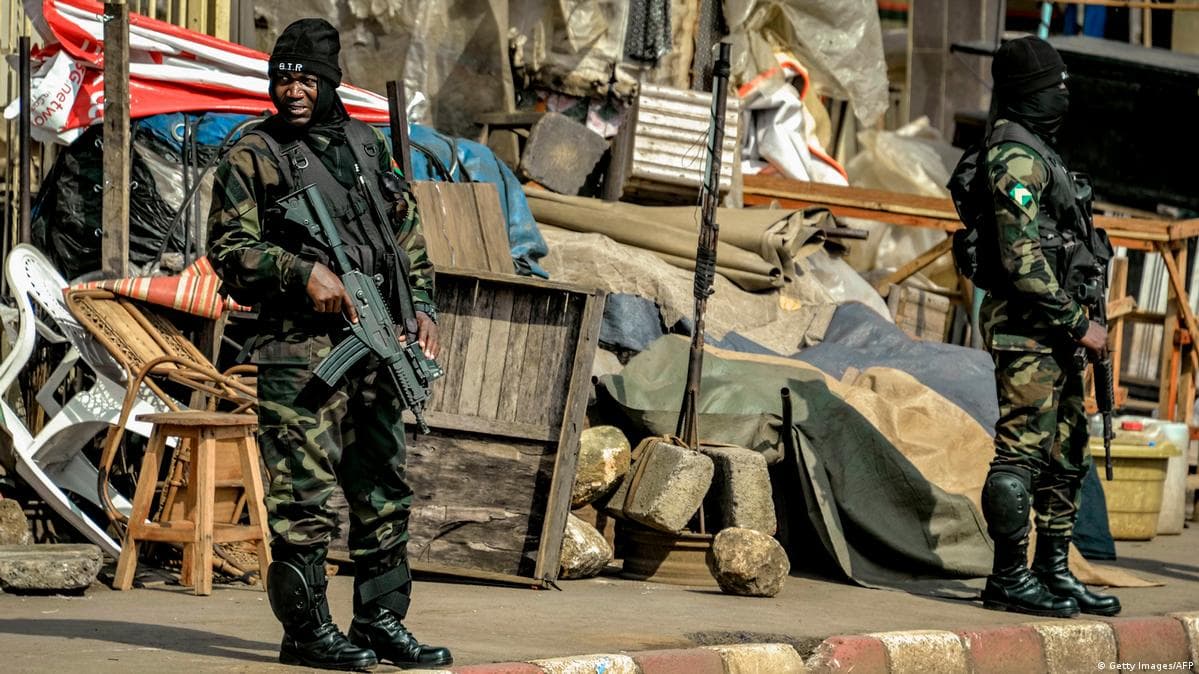YAOUNDÈ, Cameroon – After the slaying of five plantation workers by unidentified gunmen, the Catholic leader of the capital of Cameroon’s violence-plagued minority English-speaking region, Bishop Michael Bibi of Buea, has described the killings as both a “crime against humanity” and “a sin against God.”
The four men and one woman who were workers of the Cameroon Development Corporation (CDC), the country’s second largest employer after the state, were killed on Friday, February 10. Attackers reportedly first shot the driver in order to immobilize the vehicle, before proceeding to kill the other workers.
The assault has been attributed to separatist armed groups, who see the CDC as part of the exploitation of their region by the country’s French-speaking majority under President-for-life Paul Biya.
In a February 11 statement, the General Manager of the CDC, Franklin Ngoni Njie, said unidentified gunmen “attacked a personnel carrier transporting workers of the Banana Group who were returning from work. The incident took place on a stretch of road off the Tiko-Douala Road to the Mondoni Oil Mill,” some 30 miles from Cameroon’s economic capital of Douala.
“Five workers were killed, four males and one female. As of 3:00 p.m. today, February 11, 44 workers are receiving treatment at the Tiko Cottage Hospital for various injuries, while one severe case has been referred to another health facility for special attention.”
“Investigations by the competent authorities of the state to uncover the identity of the assailants are ongoing,” Njie said.
In the meantime, separatists fighting for the independence of Cameroon’s two English-speaking regions already have claimed responsibility for the attack.
Capo Daniel, the deputy defense chief and spokesperson for the Ambazonia Defense Council (one of many separatist militia groups) said the incident was “a huge, unprecedented attack” which sends a strong message to the Cameroon government, that the resources of “Ambazonia will not continue to be exploited without real benefits for the people.”
“Ambazonia” is the name of a new country separatists in Cameroon’s English-speaking regions hope to create. Capo Daniel said his organization has banned the CDC and called for attacks on the company’s “critical infrastructure.”
“Only the critical infrastructure of the CDC and other Cameroon exploitative factories and industries in Ambazonia should be targeted, not civilians,” the statement said.
“The message is clear: Cameroon will not continue to exploit Ambazonian resources that gives our people no benefit at all. Our people are better off at this moment, to continue to do their subsistence agriculture to sustain their livelihoods while we fight to exert our sovereignty and free ourselves.”
Whatever the reasons, Bibi insisted that human life is inviolate, condemning “this devastating and despicable inhuman act which has no moral, judicial, social or political justification, irrespective of the motive.”
“The act is not only a heinous crime against humanity, but a sin against God as no one has the right to take away the life of another no matter the reasons. Human life remains sacrosanct and no one, except God has power over it.”
“It is unfortunate that such abominable acts are becoming more and more common in our communities today,” Bibi said. “As a Christian community, we cannot remain indifferent to the shedding of innocent blood, kidnapping, banditry, armed robbery, looting, destruction of livelihoods, and displacement of people from their homes.”
The cleric called on the Christian community to pray for the repose of those killed, “heal the wounded, strengthen the survivors and grant true and lasting peace to our country.” He also prayed for “the repentance and conversion of perpetrators of these heinous crimes.”
The recent attack on the CDC workers adds to a string of others carried out against the corporation since the separatist conflict erupted in Cameroon in 2017.
One separatist leader, Eric Tataw notably called on fighters to “chop off the hands of workers” as a measure to dissuade them from working.
At least 20 workers have been killed since the crisis began in 2016. Besides the killings, the conflict has also meant lost income for the CDC. The corporation, which before the conflict was an important revenue stream for the government – it generated $101.8 million in 2016 – has seen dwindling fortunes in the face of intensifying violence.
In addition, most of the company’s production sites have been shut down. According to Njie, only seven of the company’s 29 production sites are fully operational. Twelve have been shut down and ten function partially. It’s had a huge impact on production as well. Rubber production, for instance, fell from 16,000 tons in 2016 to just 4,507 in 2020.
Palm oil production suffered a similar fate, dropping from 22,375 tons in 2016 to 8,493 tons in 2020, while banana production fell from 113,858 to 6,178 tons over the same period.
While production is falling, the company has been accumulating debts, particularly with regard to paying workers. Since 2018, the company has accumulated debts owed workers amounting to about $47 million.















